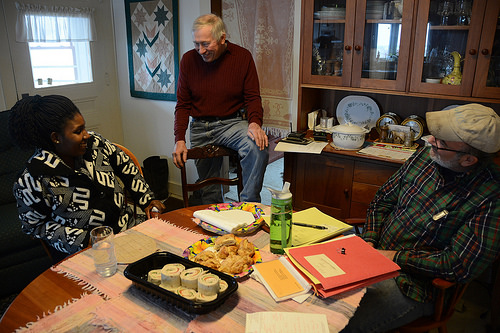
By Hailey Grohman
Professor Rachel Ankeny is an associate dean of research and deputy dean in the faculty of arts at the University of Adelaide, Australia, where she leads the Food Values Research Group.
Rachel will be a keynote speaker at the 2016 UVM Food Systems Summit on June 14-15. We talked to Rachel about her interdisciplinary research, GMOs, and the nature of good food.
Your research is very interdisciplinary, varying as widely as history, bioethics and food studies. How do you think that separate disciplines, sometimes with very different methodologies, could work together to think through food systems problems?
Food is an essentially multidisciplinary topic—to look at consumption without also looking at production, for instance, would be absurd. But it also is essential to use a variety of lenses or methods to understand food systems and the multiplicity of questions surrounding them. Of course everything has a history, but the history of food is particularly complex and intriguing, shaping all of what we eat and think about what we eat today, and it arguably has shaped the history of the world. Similarly, our values are deeply entwined with our food choices, habits, and policies. Ultimately, food is part of our biology, so concepts relating to the history and philosophy of the life sciences also are essential. Thus, in order to think through food systems problems and where we are headed, we must reflect on how we got there and how our personal and cultural philosophies have shaped that path.














